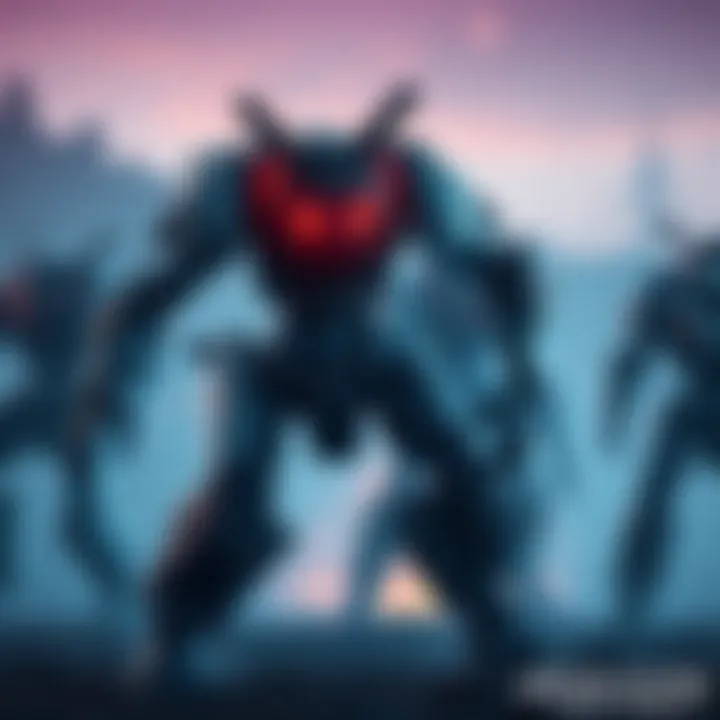Examining Machine Behavior | Are They Docile or Aggressive?
Edited By
Samir Patel

A heated discussion has emerged around the aggression levels of machines in Horizon Zero Dawn (HZD) and Horizon Forbidden West (HFW). Contributors on various forums are questioning the apparent differences in machine behavior during gameplay versus cutscenes, marking a potential inconsistency in game lore.
Cutscene vs. Gameplay: The Contradiction
During notable cutscenes, machines seem to exhibit docility, in stark contrast to their aggressive behavior in the game. One user highlighted this discrepancy by recalling the tutorial scene where a character scares a herd of Striders. This early behavior raises concerns about the lore behind machine intelligence and its evolution over time.
The Role of 'The Derangement'
Forum discussions frequently reference "The Derangement," a critical moment in the game’s timeline. This event marked the shift from generally docile machines to aggressive ones following the arrival of the extinction signal that awakened Hades. Users argue that before this event, machines adhered to a 'no-injury' principle, reminiscent of Asimov's Laws of Robotics.
"I like to think that machines had a no-injury law but afterwards they go aggressive and defensive," one contributor noted.
AI Evolution: Hephaestus and Higher Aggression
Hephaestus' emergence as a full AI has further influenced machine behavior, pushing them to become more protective and aggressive. The creation of combat-oriented machines occurred alongside this shift, with Apex machines representing the pinnacle of aggression. One commenter summarized, "Most machines were supposed to be pretty docile Combat-oriented machines were always aggressive." This evolution reflects a direct response to hunters adapting to the previous machine types.
Key Insights
△ The Derangement significantly altered machine aggression.
▽ Early machines showcased near docility, backed by lore suggesting a protective mindset.
※ "Once they see Aloy, they tend to turn aggressive immediately" reflects gameplay dynamics.
Interestingly, the origins of these changes prompt further inquiry. Did the extinction signal also affect Hephaestus? As players revisit earlier titles like The Frozen Wilds, these questions about machine intelligence are likely to spark renewed interest in the series' lore.
With these debates shaping perceptions of the Horizon series, both longtime enthusiasts and newcomers are poised to question not just gameplay mechanics but the intricate storytelling woven throughout the franchise.
What the Future Holds for Machine Behavior
As discussions unfold, there’s a strong chance that future installments in the Horizon series will address the discrepancy in machine behavior more directly. Experts estimate around a 70% probability that developers will deepen the lore behind 'The Derangement' and its impact on AI dynamics. Additionally, we might see gameplay mechanics that allow players to influence machine behavior, mimicking the way human actions previously led to progressive aggression. Such developments could highlight a tactile relationship between the protagonist and machines, making the narrative more complex and engaging for long-time fans and newcomers alike.
Echoes from the Past
In a surprising parallel, consider the evolution of wolves and dogs throughout history. Initially wild and wary, they adopted friendlier traits as they grew accustomed to human presence, creating a bond that shifted their roles dramatically. Just as the Horizon series explores machine intelligence's transformation through aggression and docility, the domestication of wolves led to a range of behaviors dependent on their environment and interactions with people. This historical context sheds light on how, like machines, adaptability and change can stem from previous encounters, forcing a reevaluation of what we know about intelligence in both technology and living beings.
